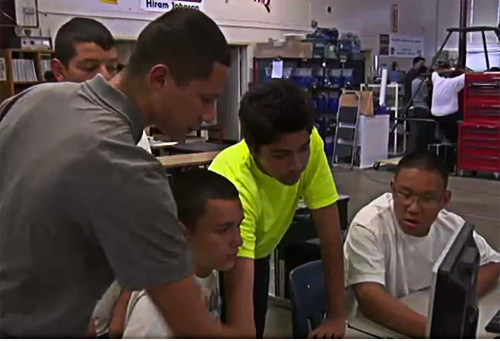The second change is relevancy in education. Studies show that the more relevant a lesson is to a student, the more likely they will retain the information and develop a motivation for learning. Do you ever remember saying to your teacher, “Why do we have to learn this?” I certainly do. Let’s face it—when a topic has no relevancy to you or your life, it can be pretty boring. Teachers can make lessons relevant by having students write about their own experiences or solve problems based on real-life examples.
[Related: How to Include Students’ Cultures in Your Classroom]
Last, but certainly not least, is relationships. Research has found that students who feel supported by their teachers are more likely to be engaged in their education. This, in turn, leads to higher levels of student achievement. Did you ever experience a teacher who would make you feel embarrassed for a wrong answer and move onto someone who got it right, never giving you time to process the information? I remember it happening to me a few times, and it was never a good feeling. Nor did I learn anything from it. I just felt awkward for being incorrect. That is why it is important for teachers to develop a rapport with their students. Making mistakes is part of life, so students need to trust their teachers and peers in order to learn from these experiences. Additionally, if relationships are rigid and students are not able to collaborate with each other to help solve problems, they may lack the necessary skill of teamwork, which is critical in today’s workplace.
So as you think about the days of yore - reading, writing, and arithmetic – they are not gone, just presented in a new fashion that is better suited to learning.
Lauren Lefebure, M.A.Ed. Research Associate



